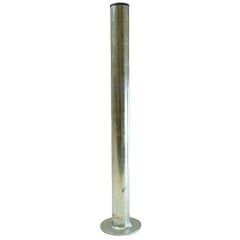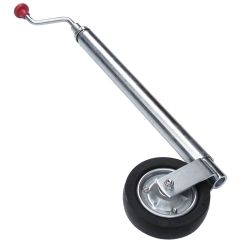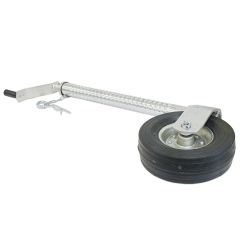
Jockey Wheel vs Prop Stand: Which One Do You Need?
Jockey Wheel vs Prop Stand: Which One Do You Need?
Whether you need a jockey wheel or a prop stand depends on your specific needs and the equipment being using. Jockey wheels and prop stands serve different purposes, and the choice between them should be based on the type of trailer, caravan, or equipment you have, along with the situations in which you are using them.
Jockey Wheel
A jockey wheel is primarily used for manoeuvring and parking trailers, caravans, and other towed equipment. It is designed to take the weight off the towing hitch, which makes it easier to move the trailer by hand.
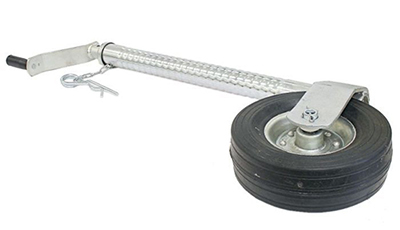
- Use a jockey wheel when you need to move or manoeuvre a heavy trailer or caravan, as it allows you to easily lift the front end of the trailer and pivot it into the correct position.
- Jockey wheels are especially useful for trailers and caravans that need to be hitched and unhitched frequently.
- They're beneficial for distributing weight and making it easier to connect the trailer to a towing vehicle.
- Jockey wheels are commonly used when you need to transport loads on wheels, including: boat trailers or larger caravans.
Prop Stands
A prop stand, also known as a trailer jack or trailer stabiliser, is primarily used for stabilising parked trailers or caravans, as it provides support to prevent the trailer from tipping or rocking when stationary.
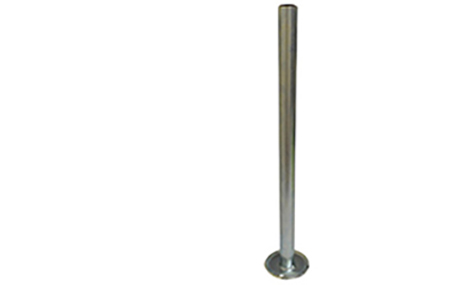
- A prop stand is ideal for stabilizing a stationary trailer or caravan when it's parked.
- It provides stability to prevents the trailer from tipping or moving when it's not attached to a towing vehicle.
- Prop stands are often used in situations where the trailer remains stationary for an extended period of time, such as when camping or using a mobile home.
- Prop stands are useful for keeping the trailer level and steady on uneven terrain.
You may find that you required both a jockey wheel and a prop stand, but their roles are different. The jockey wheel is for manoeuvring and hitching, while the prop stand is used for stabilizing and supporting the trailer when it is not in motion. The choice between them depends on your specific usage and equipment you're using, and in some cases, you may find it beneficial to have both for different purposes.

